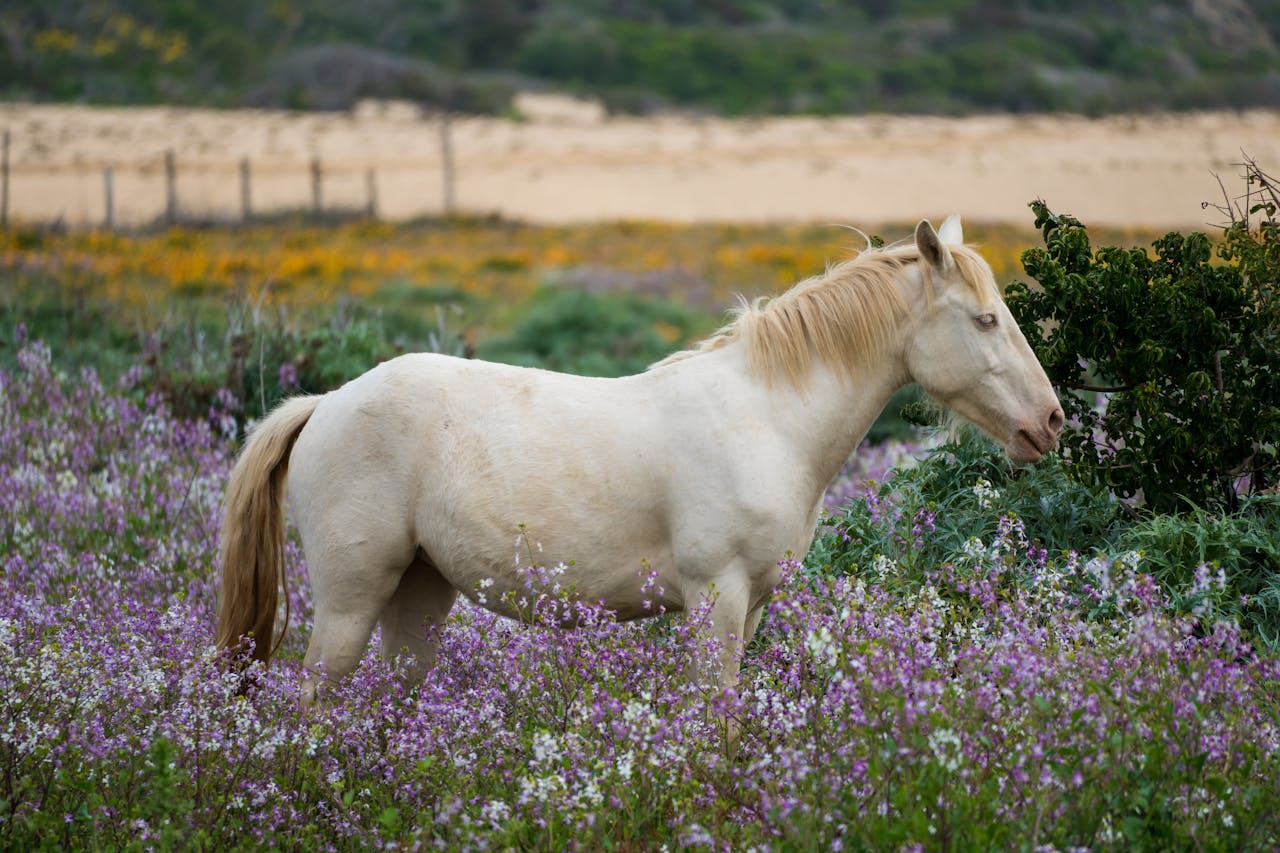As winter gives way to the vibrant renewal of spring, horse owners eagerly anticipate the joys of warmer weather and longer days spent with their beloved equine companions. However, this seasonal transition also brings unique challenges and considerations in springtime care for horses. From shedding winter coats to managing spring pasture, proactive measures are essential to ensure the health and well-being of horses during this time of year. In this blog, we’ll explore essential tips and practices for caring for horses in the spring, promoting their vitality and happiness throughout the season.
Grooming and Shedding:
Spring marks the time when horses begin to shed their thick winter coats in preparation for the warmer months ahead. Regular grooming sessions become paramount during this period to facilitate the shedding process and remove loose hair, dirt, and debris. Not only does grooming help maintain a horse’s hygiene and appearance, but it also promotes healthy circulation and skin condition. Invest in quality grooming tools such as shedding blades, curry combs, and soft brushes to effectively remove winter hair and stimulate the growth of a sleek, shiny coat.
Nutrition and Diet:
As pastures awaken with new growth in the spring, horse owners must carefully monitor their equine’s diet to ensure optimal nutrition. Introduce horses to pasture gradually to prevent digestive upset and monitor their intake of fresh grass, which can be high in sugars and potentially lead to conditions such as laminitis. Consider consulting with a veterinarian or equine nutritionist to develop a balanced feeding plan tailored to your horse’s individual needs, incorporating hay, grains, and supplements as necessary. Adequate hydration is also critical, so ensure access to clean, fresh water at all times, especially during warmer weather.
Parasite Control
Springtime brings an increase in parasite activity, making effective parasite control measures essential for maintaining horse health. Develop a strategic deworming schedule in collaboration with your veterinarian, taking into account factors such as pasture management practices, fecal egg counts, and individual horse health. Rotate deworming medications to target different types of parasites and minimize the risk of resistance development. Additionally, implement pasture management strategies such as manure removal and rotational grazing to help reduce parasite exposure for horses.
Hoof Care:
Regular hoof care is essential year-round, but springtime brings its own set of challenges for hoof health. Monitor your horse’s hooves for signs of thrush, cracks, or other issues exacerbated by wet, muddy conditions. Clean hooves regularly and consider applying hoof moisturizers or protective coatings to maintain suppleness and prevent excessive drying or cracking. Schedule routine farrier visits to trim hooves and address any potential hoof-related concerns promptly, ensuring your horse’s comfort and soundness.
Exercise and Activity:
With the arrival of milder weather, spring presents ideal opportunities for outdoor exercise and training sessions with your horse. Gradually increase exercise intensity and duration as horses transition from winter stasis to peak fitness levels, incorporating a variety of activities such as trail rides, arena work, and groundwork exercises to keep them mentally stimulated and physically engaged. Pay attention to footing conditions when riding outdoors, as springtime weather fluctuations can lead to muddy or slippery terrain in certain areas.
Coggins Testing
Coggins testing is a crucial component of equine health management, particularly in the context of preventing the spread of Equine Infectious Anemia (EIA), often referred to simply as “coggins.” This viral disease, caused by the equine infectious anemia virus (EIAV), poses significant risks to horse populations worldwide. Coggins testing plays a pivotal role in identifying and controlling the spread of this disease.
Vaccinations
Vaccination is a cornerstone of equine health management, protecting horses from a variety of infectious diseases that can cause significant illness, suffering, and economic losses. Like other animals, horses benefit from vaccination protocols tailored to their specific needs, taking into account factors such as age, lifestyle, geographic location, and risk of exposure to certain pathogens.
Caring for horses in the spring requires proactive attention to various aspects of their well-being, from grooming and nutrition to parasite control and hoof care. By implementing these essential tips and practices, horse owners can ensure that their equine companions thrive throughout the season, enjoying optimal health, vitality, and happiness. With proper care and attention, springtime becomes a time of renewal and joy for both horses and their devoted caretakers.

Leave a Reply